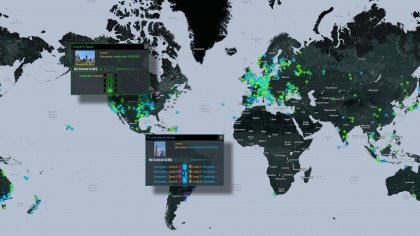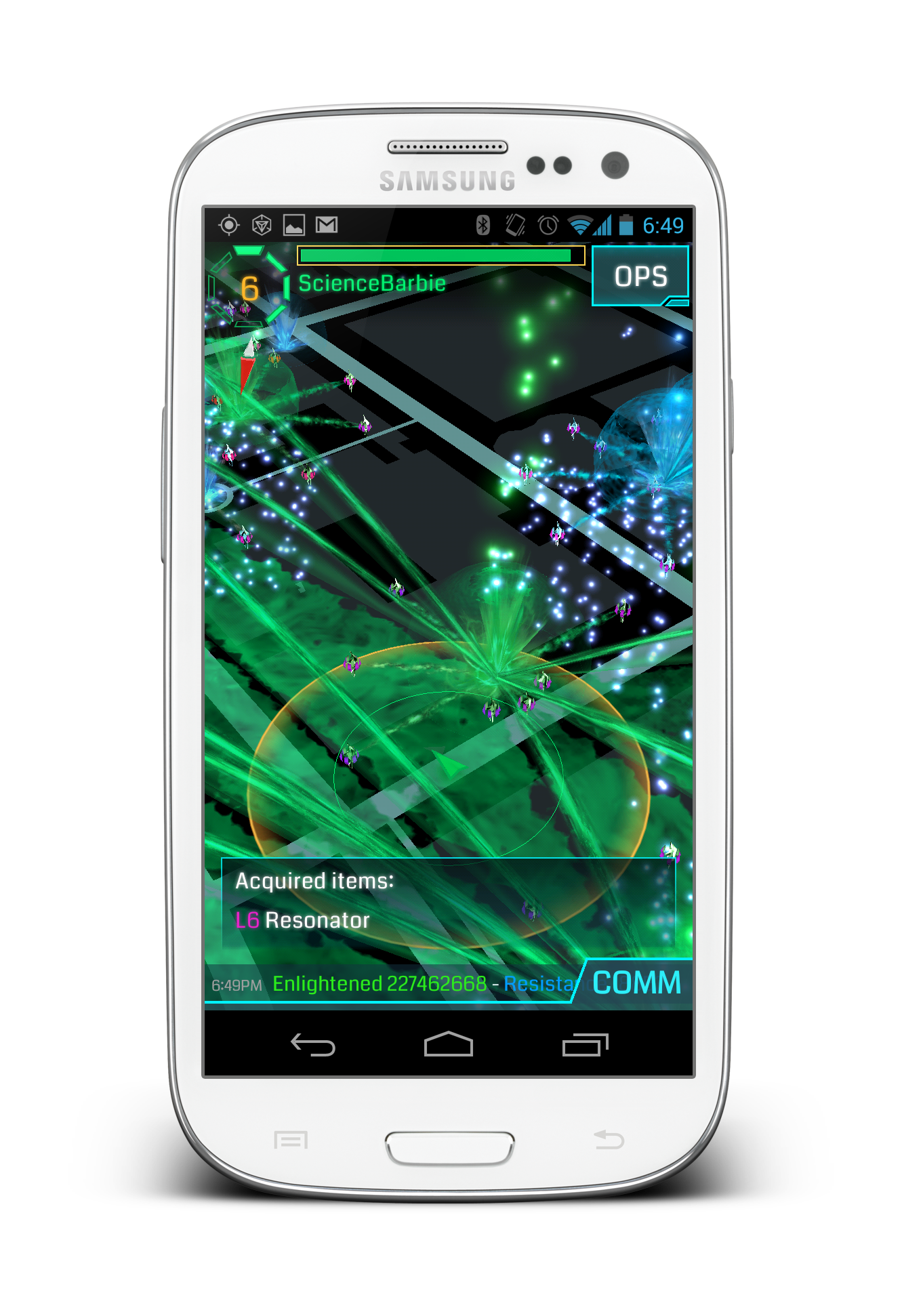Google is invading our reality - and Project Tango could take it further
After Earth

You probably don't recognise John Hanke by name, but as the man who developed the first versions of Google Earth, Maps and Street View, you've probably come across his work. You may have also stumbled on his latest project for Google's Niantic Labs startup, Ingress - an augmented reality app that transforms the world into a massive online multiplayer game. Years may have passed but Hanke's still thinking in maps.
Niantic Labs is an internal team focused entirely on mobile. Its first project was Field Trip, a neat little travel app that alerts users when they're near a point of interest. In a sense, it was a prequel to Ingress.
Two years later and Ingress saw general release on Android, and now (four million downloads later) Niantic Labs has just launched an iOS version in the hope of pulling in a tonne more users. The game itself consists of players locating "portals" hidden inside real-world artefacts - public works of art, landmarks - as they work with other members of their team to link these portals together and create a virtual triangle which "captures" that geographical area. It's a giant turf war with a sci-fi twist.
"It's a little World or Warcraft, a little geocaching," Hanke tells TechRadar. "Combine them, throw in a little JJ Abrams and that's Ingress".
There are now over 2 million of these portals spread around the globe, but they keep on growing: players can submit new locations from their neighbourhood to be considered for portal status. "In most places where people live you'll find portals within a relatively short walk or bike ride. People are playing in over 200 countries," says Hanke. "Even if it's a unique local ship that doesn't exist anywhere else, that can be considered a portal."
Who wins the world?
The aim is to win control of as much of the planet as possible, but to keep things interesting Ingress launches periodic mini stories with objectives of their own. One of these saw the teams having to move an item from one portal to another. Team Jarvis needed to get theirs to San Francisco, for team Ada it was Argentina.
"You can imagine the level of chatter, communication, people jumping in cars and running off to other cities," says Hanke. "A huge amount of the game play of Ingress happens [on people's phones]."
Get daily insight, inspiration and deals in your inbox
Sign up for breaking news, reviews, opinion, top tech deals, and more.

Ingress has already scooped up a big hardcore following in its short time on Earth. Hanke even shows us pictures of people who have tattooed themselves with their team emblem. "We have people saying to us over and over again - and it sounds crazy to say it in a conference room such as this - 'Ingress changed my life. I was in a rut or I was just going to work and going home and all of a sudden I'm discovering new parts of the city, I'm meeting new people, I feel better'. We've had more than 30 people get tattoos of the game logo."
Hanke used to create ways of seeing the world around us, now he's encouraging people to go out and learn more about it. Sure, planet Earth might lack the artistic ambition of Rapture and some of the every-present threats of Fallout's Wasteland, but augmenting our own reality is one thing phone can offer gamers that their consoles can't. And it's good for you.

"It changes the chemicals in your body when you go for a walk or a bike ride or a run. Endorphins get released and you feel good. The same thing when you have a face to face reaction with a person. So I think that's a huge thing going for these kinds of games. They get people moving and they encourage people to get together in real life. People are forming true friendships through the game… I think people are hungry for that."
But the problem augmented reality has right now is that it's still a little too intrusive. Picking up your phone and seeing some words on a screen isn't the most natural-feeling way to mess with the fabric of our perceived universe.
Hugh Langley is the ex-News Editor of TechRadar. He had written for many magazines and websites including Business Insider, The Telegraph, IGN, Gizmodo, Entrepreneur Magazine, WIRED (UK), TrustedReviews, Business Insider Australia, Business Insider India, Business Insider Singapore, Wareable, The Ambient and more.
Hugh is now a correspondent at Business Insider covering Google and Alphabet, and has the unfortunate distinction of accidentally linking the TechRadar homepage to a rival publication.
